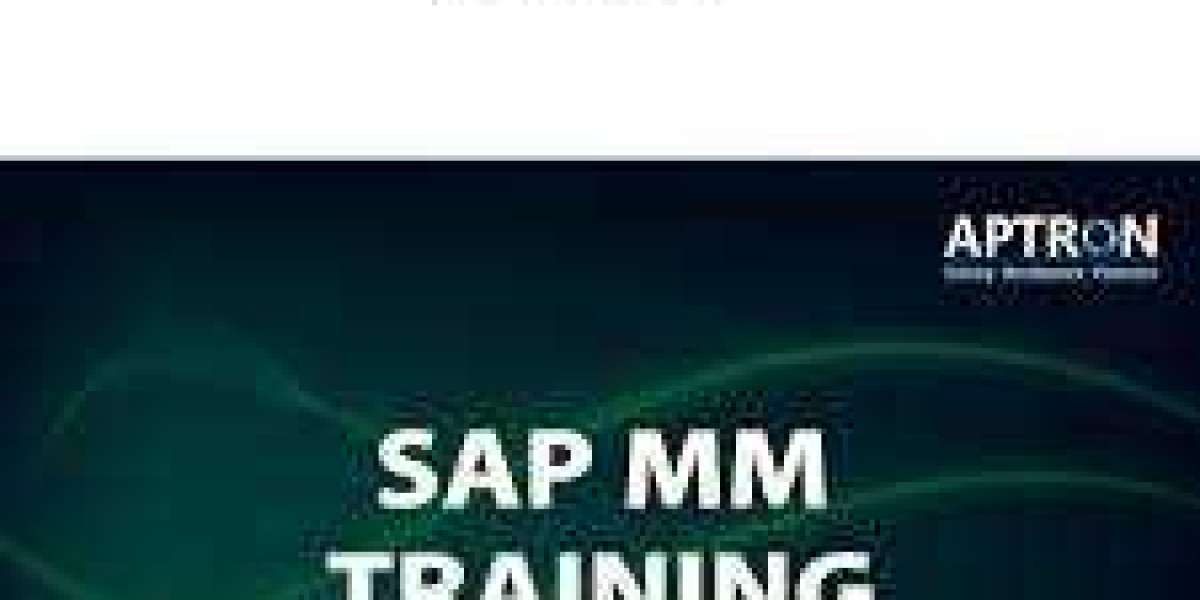The article serves as the primary object in all logistical procedures for the Retail solution, whereas the material serves this purpose for industry. When it comes to the corresponding master data and maintenance alternatives, retail and industry have different needs. Retail, for instance, requires variants in order to perform all of its fashion operations properly (such as color and size). However, industry makes use of bills of material for specific needs in the realm of production scheduling. Because there are so many products in the retail sector, processing must also include master data management.
Learning about the SAP MM Training Module will be the first step in this blog post. The SAP ERP Software includes the SAP MM Module as a core component. Many businesses use SAP Material Management because it is time and money-effective for managing their transactional and purchasing data. The logistic function, which supports the industry from product purchase to delivery, includes SAP Material Management. The SAP MM Module is made up of numerous units that deal with vendors and material acquisition, quality control of the materials, and vendor payment.
What is SAP Business Process in SAP MM Module?
The SAP MM Module is completely dependent on SAP Business Process. It manages a company's planning, manufacturing, distribution, unit maintenance, sales, and warehouse management.
Features of SAP MM Module
Some of the key features of SAP MM Module are as follows:
- It addresses both material management and inventory management.
- It is a procedure that controls any shortages or violations in a company's supply chain.
- It oversees procurement operations.
- It controls the Material (products/services) and resources of a company to increase productivity and reduce costs.
- It deals with Master Data, Material Valuation, Material Requirement, Invoice Verification, and other things.
- Benefits of the SAP MM Module
- It cuts down on operating expenses.
- It decreases inventory losses by getting rid of surplus or outdated goods.
Procurement Process In SAP MM Module
- This article will undoubtedly aid in your understanding of the SAP MM module's procurement process. The many types of procurement processes will be illustrated in this SAP MM blog post.
- Every business needs products or services to meet their needs, so they purchase them. Procurement is the name given to this process.
Functions of SAP MM Module:
- An organization's procurement activity is managed by SAP MM, which also includes the logistical processes.
- Maintaining records for recently sold materials is made easier by this.
- Additionally, it supports warehouse management.
- Finding planning, managing, and other material management problems is made simpler
- To improve high productivity at a low cost, it addresses issues with material management, inventory management, and product service resources.
- While being highly flexible, SAP MM can adapt to any changes that often occur in any corporate setting.
- It also deals with master data for the procurement process or vendor master, account determination and material valuation, inventory management, invoice verification, planning for material requirements, etc.
SAP MM Organization Structure
To run an organization smoothly, It’s mandatory to record the structure of organization. It can be in the form of recorded used materials, procurement activity, profit, and loss of an organization.
Organizational levels in SAP Material Management:
The SAP MM Module has various organisational levels. Consider running a business. Your business will have multiple levels, such as the client holding the highest organisational level in the SAP MM Module and the customer having a unique company code. The corporate code may have several plants, the SAP MM plants may have various storage locations, various organisational structures may exist in the storage, and various purchasing groups may exist in the organisation. Let's visualise this using a chart.
- Client:
In the SAP MM Module's organisational structure, the client is in charge. It is regarded as the group's synonym. Multiple company codes are present in the client. A client in SAP MM is a business entity. It develops a unique collection of master data. For every level that occurs in the organisational tiers of SAP Material Management, the data that is maintained in the client is accurate.
- Company Code:
An organisational unit known as a company code in SAP is generated in the SAP FI (Finance) module and linked to SAP MM at the same time (Material Management). The Company code is an independent accounting group that represents the company inside the client. Company code keeps track of an organization's revenue and expenses. This is a company's smallest account.
- Plant:
A Plant is an organisational unit of a company where different activities take place. It produces the goods for the company. The plant looks after the stored material of a company. Plant in SAP MM is helpful in manufacturing the goods. It has a warehouse distribution center and a regional sales office within logistics.
- Storage Location:
The storage site is nothing more than a physical location where stocks are held. A plant has a lot of storage spaces inside of it. A logistics unit attached to the factory, the storage location, is where stocks are held physically and where inventory is done. The characteristics of the storage site, such as where finished goods are kept, where raw materials are kept, where returns from sales are kept, where spare parts are kept, etc., can be used to categorise it.
- Purchasing Organization:
In SAP MM, a company's purchasing organisation oversees its purchase activities in accordance with specifications. Additionally, it oversees a company's external procurement activities. The purchasing company is often referred to as a centralised purchasing company.
There are different forms of purchasing organization they are:
- Centralised Purchasing:
Centralised Purchasing manages the procurement activity of all company codes which belong to the different clients. It is not assigned to any company codes.
- Company-Specific Purchasing:
Through this purchasing organization, the current plant in a company code acquires the materials. Not all company codes have it given to them.
- Plant Specific Purchasing:
A plant receives Plant Specific Purchasing. Through this purchasing structure, only this particular factory may control the company's purchase operations.
- Purchasing Group:
A company's daily purchase operation is managed by the purchasing group. This procurement activity is managed by a buyer or a group of buyers within a Purchasing Organization.
Also, Read, SAP MM Training in Delhi









Pisces Education 1 y
Thank you for this wonderful Article. If you want to learn Interior and Architectural Courses at Pisces Education then you can call us at +91-9911096413